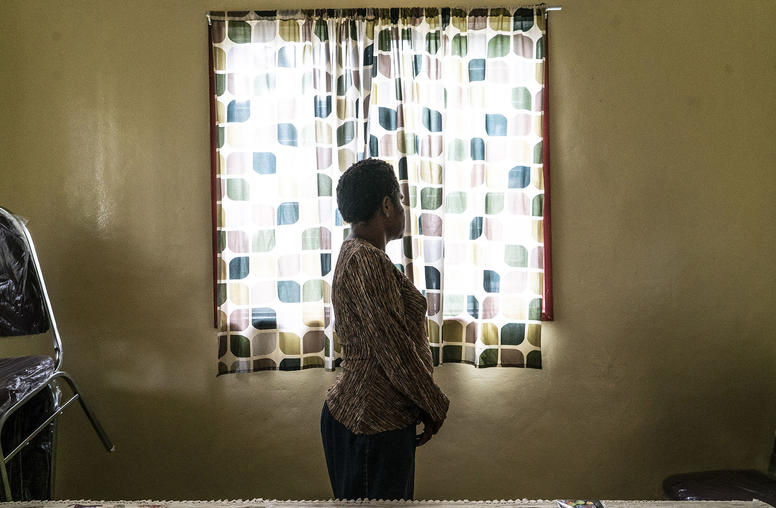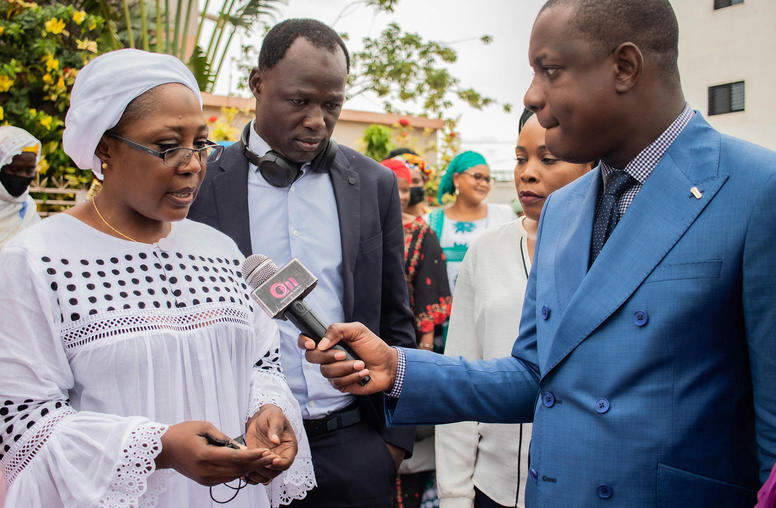Research & Analysis
U.S. Institute of Peace’s articles, reports, tools and other features provide policy analysis, research findings, and practitioner guides. These publications examine critical conflict issues at the center of the Institute’s work to prevent and resolve violent conflict.
The views expressed in these publications are those of the author(s).

Addressing Gendered Violence in Papua New Guinea: Opportunities and Options
Each year, more than 1.5 million women and girls in Papua New Guinea experience gender-based violence tied to intercommunal conflict, political intimidation, domestic abuse, and other causes. It is, according to a 2023 Human Rights Watch report, “one of the most dangerous places to be a woman or girl.” Bleak as this may seem, it is not hopeless. USIP’s new report identifies several promising approaches for peacebuilding programming to reduce gender-based violence and effect meaningful and lasting change in Papua New Guinea.

Kathleen Kuehnast on a Survivor-Centric Path to Ending Sexual Violence in War
Conflict-related sexual violence “not just violates the physical, but the mental and social integrity of societies.” To address this crime, USIP’s Kathleen Kuehnast says we need a survivor-centered approach: “Survivors are experts, they need to be [present] at every part of our understanding and … policy-shaping.”

Sexual Violence Is Not an Inevitable Cost of War
The ever-growing list of conflict zones in which sexual violence has been reported globally this year, including in Israel, Ethiopia, Sudan, Ukraine, the Democratic Republic of Congo and Haiti, underscores the persistent horror of this scourge. Acts of conflict-related sexual violence (CRSV) violate not only the physical and mental integrity of the victims but also breach international humanitarian law and human rights principles.

Kathleen Kuehnast on Preventing Conflict-Related Sexual Violence
Last month, the U.N. Security Council echoed past assessments that not enough has been done to address conflict-related sexual violence. But researchers “have established that this particular crime of war is not inevitable,” says USIP’s Kathleen Kuehnast, and there are new strategies for “how best to address the trauma” and prevent it.

Five Gains and Gaps in the Campaign to End Conflict-Related Sexual Violence
The wars of the 1990s — particularly in the former Yugoslavia, Rwanda, Sierra Leone and the Democratic Republic of the Congo (DRC) — saw the devastating use of sexual violence not only by individual subordinate soldiers, but as deliberate tactics of war by state and non-state armed actors. In response, a wave of strong advocacy from women’s civil society organizations called for an end to these acts of violence, and their vision was eventually incorporated into U.N. Security Council Resolution (UNSCR) 1325 and what is now known as the Women, Peace and Security (WPS) agenda in 2000.

Four Ways to Include Conflict-Related Sexual Violence in Atrocity Prevention
Conflict-related sexual violence is not only an indicator of rising atrocity risk — it can also constitute an atrocity crime itself. And while the U.S. government has implemented conflict-related sexual violence response efforts, concurrent international efforts on the issue offer a solid foundation for the United States to go beyond responding to these crimes and toward prevention.

Protecting the Participation of Women Peacebuilders
Worsening violence against women is often a precursor to — and early outcome of — the rise in coups and authoritarianism that have made recent headlines. Not only does protecting women’s participation in public life and decision-making go hand-in-hand with democracy, but the former is actually a precondition for the latter. As we mark International Women’s Day in 2022, we would do well to remember that global efforts to prevent violent conflict and sustain peace are significantly undermined when women are deterred from access to participation and full leadership without fear of reprisals and violence.

Myanmar’s Ongoing War Against Women
When the United Nations began its annual campaign to end violence against women 30 years ago, no one had Myanmar on their radar. But in recent years, Myanmar’s military has escalated its use of sexual and gender-based violence to terrorize women and girls — most infamously against ethnic minorities, notably the Rohingya. Confronted by these atrocities, the international community has issued widespread demands for accountability and justice that have yet to come to fruition.

Kathleen Kuehnast on the 20th Anniversary of UN Resolution 1325
Two decades after the passage of the landmark resolution on women, peace and security, USIP’s Kathleen Kuehnast points to the 86 countries that have taken action to address the unique experience of women in conflict as proof of progress, but says that getting women more involved in peace processes is “a long game … it is difficult to find room for women at any table.”

Kathleen Kuehnast on the Inaugural Women Building Peace Award
USIP’s Kathleen Kuehnast discusses the inspiring work of Women Building Peace Award recipient Rita Lopidia of South Sudan, as well as the other finalists, praising “the incredible resilience that each of these 10 women has brought to situations of inequality, of extreme violence, and despair.”